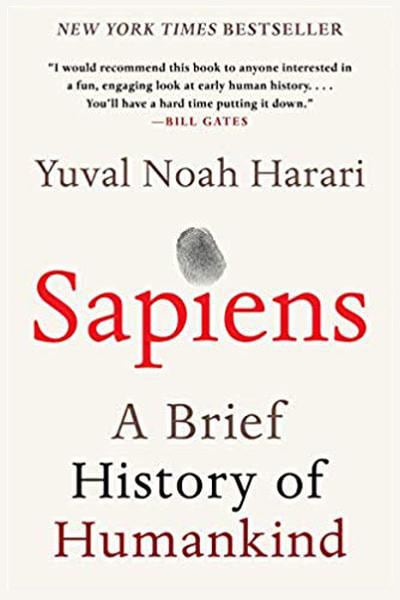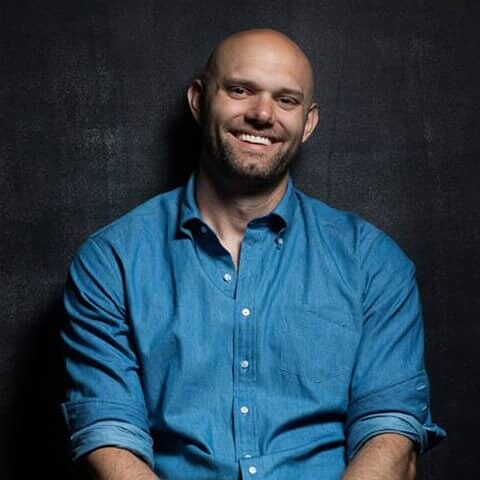 author
authorTop Book Recommendations by Yuval Noah Harari: Best Books for Success
Yuval Noah Harari is an Israeli historian and professor in the Department of History at the Hebrew University of Jerusalem. He is the author of the popular science bestsellers Sapiens: A Brief History of Humankind, Homo Deus: A Brief History of Tomorrow, and 21 Lessons for the 21st Century. His writings examine free will, consciousness, intelligence, happiness, and suffering.
Harari writes about the cognitive revolution occurring roughly 70,000 years ago when Homo sapiens supplanted the rival Neanderthals and other species of the genus Homo, developed language skills and structured societies, and ascended as apex predators, aided by the agricultural revolution and accelerated by the scientific process, which have allowed humans to approach near mastery over their environment. His books also examine the possible consequences of a futuristic biotechnological world in which intelligent biological organisms are surpassed by their creations; he has said, "Homo sapiens as we know them will disappear in a century or so."
In Sapiens: A Brief History of Humankind, Harari surveys human history from the evolutionary emergence of Homo Sapiens to 21st Century political and technological revolutions. The book is based on his lectures to an undergraduate world history class.
Yuval Noah Harari was born and raised in Kiryat Ata, Israel, one of three children born to Shlomo and Pnina Harari. His family was a secular Jewish family. His father was a state-employed armaments engineer, and his mother was an office administrator. Harari taught himself to read at age three. He studied in a class for intellectually gifted children at the Leo Baeck Education Center in Haifa from the age of eight. He deferred mandatory military service in the Israel Defense Forces to pursue university studies as part of the Ayuda program. Still, he was later exempted from completing his military service following his studies due to health issues. He began studying history and international relations at the Hebrew University of Jerusalem at age 17.
Harari first specialized in medieval history and military history in his studies from 1993 to 1998 at the Hebrew University of Jerusalem. He completed his D.Phil. degree at Jesus College, Oxford, in 2002, under the supervision of Steven J. Gunn. From 2003 to 2005, he pursued postdoctoral studies in history as a Yad Hanadiv Fellow. While at Oxford, Harari first encountered the writings of Jared Diamond, whom he acknowledged as an influence on his writing. At a Berggruen Institute salon, Harari said that Diamond's Guns, Germs, and Steel "was an epiphany in my academic career. I realized that I could write such books."
Harari has published numerous books and articles, including Special Operations in the Age of Chivalry, 1100–1550; The Ultimate Experience: Battlefield Revelations and the Making of Modern War Culture, 1450–2000; The Concept of 'Decisive Battles' in World History; and Armchairs, Coffee and Authority: Eye-witnesses and Flesh-witnesses Speak about War, 1100–2000. He now specializes in world history and macro-historical processes.
His book Sapiens: A Brief History of Humankind was initially published in Hebrew in 2011 based on the 20 lectures of an undergraduate world history class he was teaching. It was released in English in 2014 and has since been translated into 45 additional languages. The book surveys the entire length of human history, from the evolution of Homo sapiens in the Stone Age to the political and technological revolutions of the 21st Century. The Hebrew edition became a bestseller in Israel and generated much interest among the general public, turning Harari into a celebrity. Joseph Drew wrote that "Sapiens provides a wide-ranging and thought-provoking introduction for students of comparative civilization," considering it as a work that "highlights the importance and wide expanse of the social sciences."
Harari's follow-up book, Homo Deus: A Brief History of Tomorrow, was published in 2016 and examines the possibilities for the future of Homo sapiens. The book's premise outlines that, in the future, humanity will likely make a significant attempt to gain happiness, immortality, and God-like powers. Furthermore, the book openly speculates various ways this ambition might be realized for Homo sapiens in the future based on the past and present. Among several possibilities for the future, Harari develops the term "dataism" for a philosophy or mindset that worships big data. In The New York Times Book Review, Siddhartha Mukherjee stated that although the book "fails to convince me entirely," he considers it "essential reading for those who think about the future."
Harari's book, 21 Lessons for the 21st Century, published on 30 August 2018, focused more on present-day concerns. A review in the New Statesman commented on "risible moral dictums littered throughout the text," criticizing Harari's writing style, and stated that he was "trafficking in pointless asides and excruciating banalities." On the other hand, Kirkus Reviews praised the book as a "tour de force." They described it as a "highly instructive exploration of current affairs and the immediate future of human societies."
In November 2020, the first volume of his graphic adaptation of Sapiens: A Brief History of Humankind, Sapiens: A Graphic History – The Birth of Humankind, co-authored with David Vandermeulen and Daniel Casanave, was published and launched at a live stream event organized by How to Academy and Penguin Books.
In 2022, Harari's latest book, Unstoppable Us: How Humans Took Over the World, illustrated by Ricard Zaplana Ruiz, was published and is a "Story of Human History — for Kids." In fewer than 200 pages of child-friendly language, Harari covers the same content as his best-selling book Sapiens: A Brief History of Humankind, but "he has simplified the presentation for this younger audience without dumbing it down." This book is "the first of four planned volumes."
Best author’s book



























